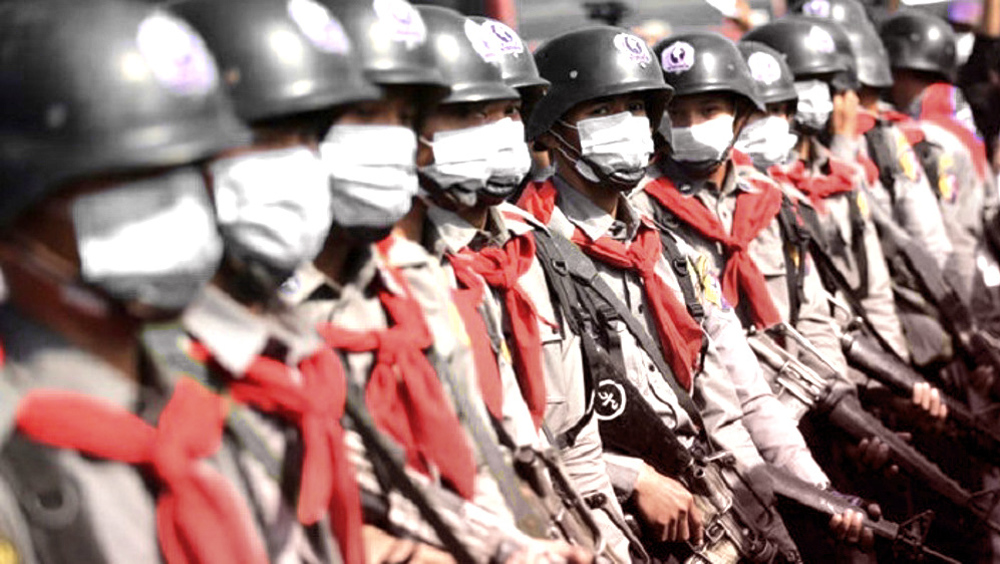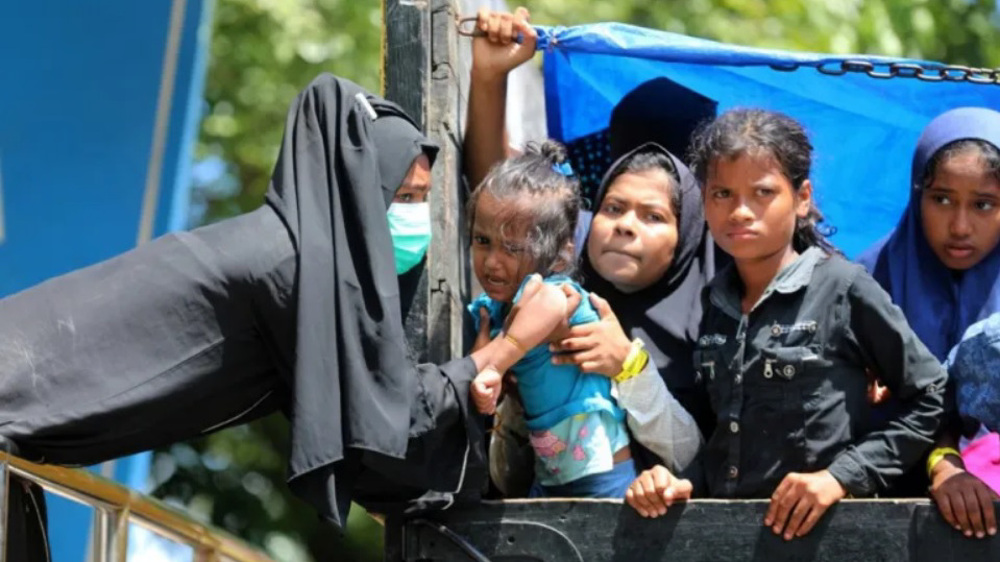Junta in Myanmar declares martial law as pressure mounts on coup leaders
A junta in Myanmar has declared martial law in parts of Mandalay, the country’s second-largest city, after hundreds of thousands of people demonstrated nationwide against a much-condemned military coup that ousted de facto leader Aung San Suu Kyi.
The partial martial law was imposed on at least seven townships in Mandalay on Monday, forbidding people from protesting or gathering in groups of more than five.
According to a statement by the general administration department, a curfew will also be in place from 8 p.m. until 4 a.m. local time.
A similar statement has also been issued in a township in Ayeyarwaddy further south and announcements concerning other localities are expected to trickle out on Monday night.
A junta, led by Myanmar’s Commander in Chief Senior General Min Aung Hlaing, took control of the country on early February 1 after detaining Suu Kyi, President Win Myint as well as other senior figures from the ruling National League for Democracy (NLD) party through a coup, which has drawn worldwide condemnation.
The junta, which has declared a one-year emergency across the country, claims that it seized power after it found widespread fraud in elections held three months ago that the NLD won in a landslide.
The coup leaders have pledged to hold fresh elections in a year and hand over power to the winner.
The military takeover of power triggered widespread international condemnation. The United Nations continued to press for a restoration of democracy.
A campaign of civil disobedience has also begun, with doctors, teachers, textile workers, civil servants, and railway employees walking off the job in Yangon.
On Sunday, tens of thousands of people overcame a nationwide internet blockade to hold protest rallies in the first major outpourings of opposition to the coup, demanding the release of Suu Kyi and other arrested people, despite stern warnings issued by the military against further protests.
Earlier on Monday, police fired bursts of water cannon as thousands of people gathered on a highway in Naypyidaw. In Yangon, the nation's commercial capital, protesters spilled onto the city's main roads, immobilizing traffic and dwarfing the Sunday’s demonstration.
“‘Down with military dictatorship’ and ‘Release Daw Aung San Suu Kyi and arrested people,’” protesters chanted, flashing the three-finger salute that has come to symbolize their movement as car horns were honked in support.
The military has so far refrained from using deadly force as it did during previous widespread protests in 1988 and 2007. However, fears of a bloody crackdown have been raised after a convoy of military trucks was seen passing into Yangon late on Sunday.
“Action must be taken according to the law with effective steps against offenses which disturb, prevent and destroy the state's stability, public safety and the rule of law,” a statement read by state broadcaster MRTV, warning that opposition to the junta was unlawful and signaled a potential crackdown.
Pope urges Myanmar junta to release political inmates
Separately on Monday, Pope Francis called on Myanmar’s coup leaders to free political prisoners and to restore the country’s “brusquely interrupted” path to democracy.
“The path to democracy undertaken in recent years was brusquely interrupted by last week’s coup d’état,” Francis said in his annual address to diplomats from more than 180 countries.
“This has led to the imprisonment of different political leaders, who I hope will be promptly released as a sign of encouragement for a sincere dialogue aimed at the good of the country,” he added.
The Southeast Asian country, also known as Burma, was ruled by the armed forces until 2011, when Suu Kyi ended the military rule and introduced her reforms.
Suu Kyi, who won a Nobel Peace Prize 30 years ago, faces international scrutiny for her support for a military crackdown against Rohingya Muslims in the western state of Rakhine.
She defended the military's atrocities against the Rohingya people at the UN’s top court in The Hague in December 2019.
Hamas blasts Western media for blindly defending false Israeli narrative
ElBaradei condemns US threats of military action against Iran
‘No two-hour war’: Iran vows immediate retaliation to any attack
VIDEO | US warmongering threatens stability
Pezeshkian: US must end provocations if it seeks genuine diplomacy
Iran summons German ambassador over Merz’s ‘low-minded’ remarks
Iran's Armed Forces warn EU of ‘consequences’ of IRGC designation
Iran FM: EU’s blacklisting of IRGC a ‘major strategic mistake’













 This makes it easy to access the Press TV website
This makes it easy to access the Press TV website